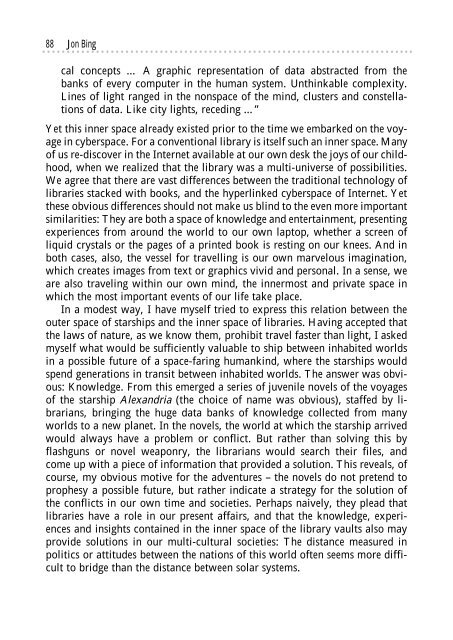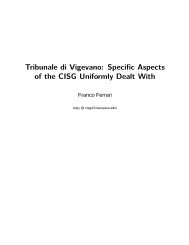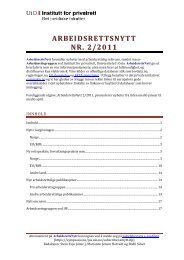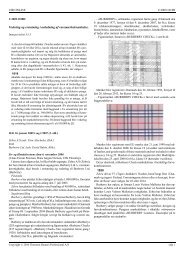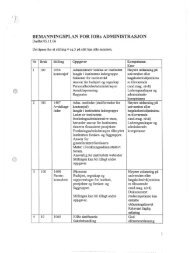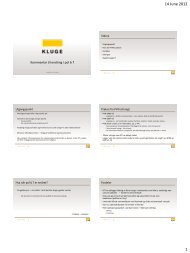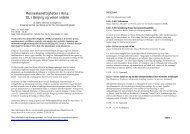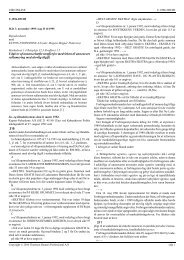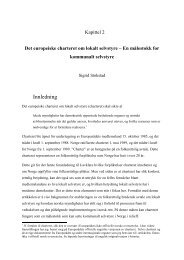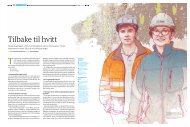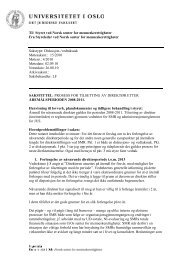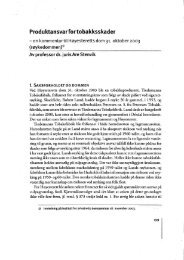Lee A. Bygrave (red.) YULEX 2002 - Universitetet i Oslo
Lee A. Bygrave (red.) YULEX 2002 - Universitetet i Oslo
Lee A. Bygrave (red.) YULEX 2002 - Universitetet i Oslo
Create successful ePaper yourself
Turn your PDF publications into a flip-book with our unique Google optimized e-Paper software.
............................................................................<br />
88 Jon Bing<br />
cal concepts … A graphic representation of data abstracted from the<br />
banks of every computer in the human system. Unthinkable complexity.<br />
Lines of light ranged in the nonspace of the mind, clusters and constellations<br />
of data. Like city lights, receding …”<br />
Yet this inner space already existed prior to the time we embarked on the voyage<br />
in cyberspace. For a conventional library is itself such an inner space. Many<br />
of us re-discover in the Internet available at our own desk the joys of our childhood,<br />
when we realized that the library was a multi-universe of possibilities.<br />
We agree that there are vast differences between the traditional technology of<br />
libraries stacked with books, and the hyperlinked cyberspace of Internet. Yet<br />
these obvious differences should not make us blind to the even more important<br />
similarities: They are both a space of knowledge and entertainment, presenting<br />
experiences from around the world to our own laptop, whether a screen of<br />
liquid crystals or the pages of a printed book is resting on our knees. And in<br />
both cases, also, the vessel for travelling is our own marvelous imagination,<br />
which creates images from text or graphics vivid and personal. In a sense, we<br />
are also traveling within our own mind, the innermost and private space in<br />
which the most important events of our life take place.<br />
In a modest way, I have myself tried to express this relation between the<br />
outer space of starships and the inner space of libraries. Having accepted that<br />
the laws of nature, as we know them, prohibit travel faster than light, I asked<br />
myself what would be sufficiently valuable to ship between inhabited worlds<br />
in a possible future of a space-faring humankind, where the starships would<br />
spend generations in transit between inhabited worlds. The answer was obvious:<br />
Knowledge. From this emerged a series of juvenile novels of the voyages<br />
of the starship Alexandria (the choice of name was obvious), staffed by librarians,<br />
bringing the huge data banks of knowledge collected from many<br />
worlds to a new planet. In the novels, the world at which the starship arrived<br />
would always have a problem or conflict. But rather than solving this by<br />
flashguns or novel weaponry, the librarians would search their files, and<br />
come up with a piece of information that provided a solution. This reveals, of<br />
course, my obvious motive for the adventures – the novels do not pretend to<br />
prophesy a possible future, but rather indicate a strategy for the solution of<br />
the conflicts in our own time and societies. Perhaps naively, they plead that<br />
libraries have a role in our present affairs, and that the knowledge, experiences<br />
and insights contained in the inner space of the library vaults also may<br />
provide solutions in our multi-cultural societies: The distance measu<strong>red</strong> in<br />
politics or attitudes between the nations of this world often seems more difficult<br />
to bridge than the distance between solar systems.


